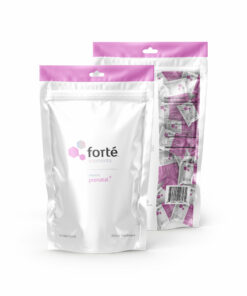Subtotal: $35.00
Women's Health
7 Things to Know About Breastfeeding
Breastfeeding has been described as “a hike through the woods: natural, but not always simple. In fact, it can be challenging, breathtaking, and full of the unexpected”1.
That’s the perfect way to describe it –sometimes challenging, unexpected. It can be a little bit harder than you first think but ultimately a great joy. Breastfeeding is one of those natural processes that people think they know all about. Surprisingly, there is a lot of information about breastfeeding that still isn’t common knowledge. Here are just a few of them.
1 – Breast milk is the healthiest and best food for your baby
There is simply no competition. Whether it’s compared to formulas or milk substitutes, nothing is better for your baby than breast milk. All the nutrients, vitamins, minerals, and antibodies that your baby needs to grow up healthy are passed through breast milk.
The most important aspect of breast milk is the antibodies that pass along to your child. Antibodies are molecules that act as the body’s natural defense against infections. Breast milk is the passage through which your baby receives these antibodies. Nothing else does this so well.
Research also shows that breastfed babies get fewer colds and sinus and ear infections2. They also have less diarrhea, fewer respiratory infections2, and are less likely to be overweight 9-14 years later3.
However, though this is true, some women are unable to breastfeed. If this applies to you, you do not need to panic. Your baby can still receive vital nutrients from other options. Consult with your physician about the best formulas and methods for your baby.
2 – Just about everything you eat gets passed on to your baby
You’re a food supply now. This means that your nutrition is of utmost importance. Try to eat a well-balanced diet that includes
- fruits,
- vegetables,
- proteins,
- carbohydrates, and
- healthy fats.
Women who are exclusively breastfeeding need to get an extra 500 calories each day4. Due to this extra demand, it’s a good idea to eat food from all the different groups whenever possible.
Other nutrition tips
- Stay well hydrated. Water, juice, and milk are all good options.
- Consider starting a postnatal supplement if you think you aren’t getting all the nutrients you need.
- Keep caffeine and alcohol intake to an absolute minimum.
Medications
If you need medications (for anything from a cold to a chronic condition), check with your doctor first. Some medications pass the barrier from your breastmilk to your baby. Speak to your pharmacist, OBGYN, or midwife before using any medications.
3 – Breastfeeding affects your health
Breastfeeding can lower your risk of cancer, help you lose weight, and make you feel good. This might sound like the claim of a miracle drug, but it’s all true. A little-known fact is that breastfeeding can lower your risk of breast and ovarian cancer5,6. Studies show that breastfeeding can lower your risk of breast cancer, particularly if you have children when you are younger7.

Breastfeeding is also a great way to bond with your baby. The physical contact forces you to sit still and focus on nurturing your child. It’s a time when both mother and baby can focus on one another and nothing else. When breastfeeding, your body releases a hormone called oxytocin. It’s a feel-good hormone because it helps the body relax and lowers stress levels. In fact, oxytocin is also known as the ‘love hormone’. It’s the same hormone released when people fall in love (or at least for the first six months of a relationship)8. The release of this hormone makes you feel good and more at ease.
Finally, prolactin (the hormone that causes your milk flow) is also released while breastfeeding. This hormone can help keep the baby blues away9 and can even help you shed extra calories.
4 – Nursing is tough in the beginning
One aspect nobody tells you while you’re pregnant is that breastfeeding can be a little tricky at the beginning. The first few times you breastfeed can feel a bit uncomfortable, painful, and even unnatural. With a little practice, it gets better and you’ll most likely get the hang of it within a few days.
If you’re in the hospital, you’re surrounded by helpful doctors, nurses, and breastfeeding specialists who can give you some guidance and tips. When it comes to breastfeeding, don’t be afraid to reach out and ask for some help or advice, you’re not alone.
5 – You won’t get your period, but you can still get pregnant (again)
Mothers who are exclusively breastfeeding usually don’t get their period. The hormone prolactin (mentioned before) during breastfeeding doubles up to stop the menstruating process. You might think you’re covered from a contraceptive point of view. But you can still get pregnant again without having your period. Speak to your doctor about birth control methods that won’t interfere with your milk supply.
Speak to your doctor about birth control methods that won’t interfere with your milk supply. Your physician can provide you with options and answer any questions you have about your period and birth control while breastfeeding.

6 – Breast milk and formula is an option
Women don’t have to exclusively breastfeed. Whether its down to personal choice or for medical reasons, many women use a combination of breast milk and formula. Just remember that milk production may drop when you use formula on a more frequent basis. Yet, co-feeding with breast milk and formula is generally a good option for those that need it.
Again, you do not need to panic if you cannot breastfeed or do not produce enough milk. Your baby can still receive the right nutrients and be healthy. Research the healthiest formulas for your baby and check with your doctor or pediatrician for guidance on the best option.
7- It can be painful
While breastfeeding, you may experience soreness, tenderness, or pain. This can happen for multiple reasons. The main cause of pain is often due to incorrect positioning. This is why it is important to find a position that is comfortable for both you and your baby. Still, even if you use proper positioning, you still may experience some pain.
There are many things you can do to relieve the soreness. You can:
- break the suction, reposition your baby, and try again.
- apply a warm cloth to your breasts after feedings.
- try frequent, shorter nursing periods instead of waiting long periods of time between feedings.
- wear a supportive nursing bra.
- talk to a lactation consultant if the pain continues or gets worse10.
If you are a new mom, breastfeeding is unlike anything you have done before. For some, breastfeeding comes easily but is more difficult for others. It may be easy to get discouraged, but remember that most women need a trial and error period. Do not feel embarrassed or hesitant to meet with your doctor or a lactation consultant if you need help. With time and a little bit of help, breastfeeding can be a wonderful experience.
Shop Forte Supplement Products


 Forté Prenatal+ Supplement
Forté Prenatal+ Supplement 